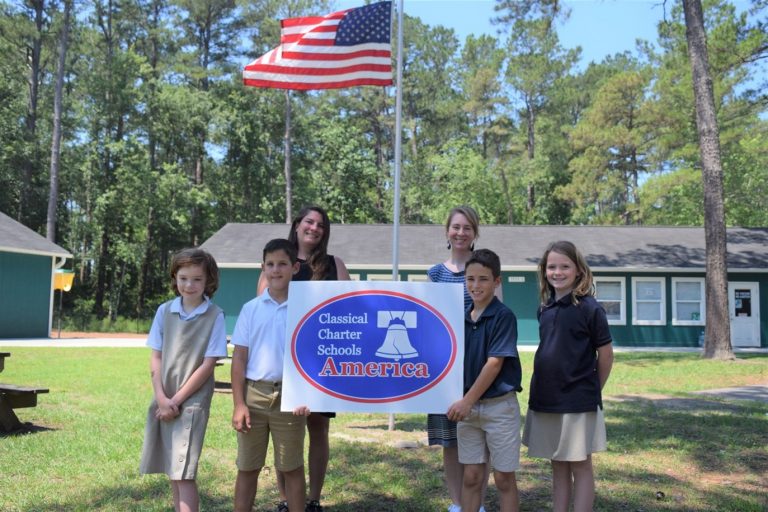
Students at Charter Day School, which in 2021 changed the name of its network to Classical Charter Schools of America.
Charter schools are still public schools, at least for now.
The U.S. Supreme Court announced Monday that it would not hear Charter Day School, Inc. v. Peltier, a closely watched case involving a North Carolina charter school’s dress code but that could have had broader implications for charter schools.
A group of female students sued Charter Day School, arguing its skirts-only dress code rule violated the Constitution. Their case hinged on whether the school was public or private under North Carolina law. Charter Day School had argued that charter schools, which receive government money but are privately managed, are essentially private and therefore not subject to the Constitution’s Equal Protection clause.
The high court’s decision to turn away the case came after the U.S. solicitor general for the Biden administrator advised the court not to hear the case and said that the U.S. 4th Circuit Court of Appeals 10-6 decision in favor the plaintiff was correct and that the case was not “a good vehicle for considering the question presented.”
The question it referred to centers on the status of charter schools. A ruling that affirmed Charter Day School’s assertion that such schools are private could have opened the door to faith-based charter schools that would not be bound by federal anti-discrimination laws.
Another test case could come from Oklahoma, which last month approved an application for the nation’s first religious charter school. The state’s Catholic church leadership have said St. Isidore of Seville Catholic Virtual Charter School would enable them to better serve students in rural areas without access to traditional Catholic schools and that charter status would allow it to serve families of all incomes as well as provide services for students with special needs.
Opponents argued that allowing the school violated the constitutional separation of church and state.
The application, which the Oklahoma Stateside Virtual Charter School Board approved on a 3-2 vote, has been mired in controversy, with advocates on both sides threatening a legal challenge depending on the outcome.
Brett Farley, a spokesperson for the Catholic Conference of Oklahoma, responded to the high court’s decision not to take up the North Carolina case, saying that any ruling it would have issued likely would have been limited to North Carolina.
“While it's a surprise, this case was not an ideal vehicle to resolve the question precisely because it's one can only be resolved state by state given that there are 45 unique charter regimes,” he said. “What may be true in North Carolina, therefore, isn't necessarily true for Oklahoma or for other charter states.”
However, a national charter school advocacy group, which opposed the Oklahoma charter application, praised the Supreme Court’s decision as confirmation that charter schools are public.
“We are pleased to put this matter behind us and move forward with the critically important work of ensuring every child in this nation has access to a high-quality public education,” said Nina Rees, president and chief executive officer of the National Alliance of Public Charter Schools. “The actions of the high court affirm that as public-school students, charter school students are entitled to the same federal protections as their counterparts who attend district schools."